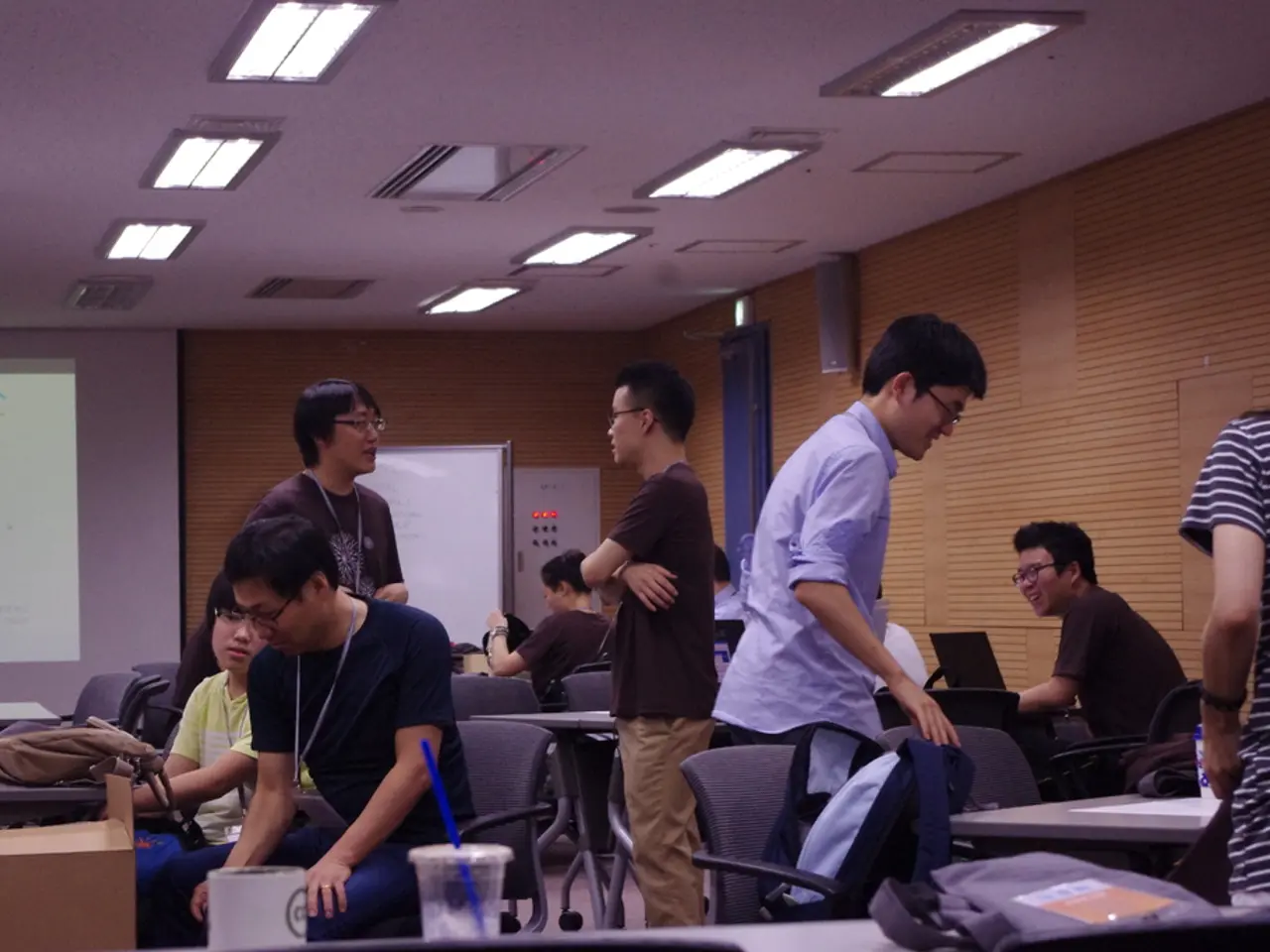Technology's Impact in Education: Revamping Learning with Digital Tools
In the contemporary world, technology is revolutionizing education, making learning more accessible, engaging, and empowering for students worldwide. This transformation is marked by the integration of creative, flexible, and inclusive learning environments, as well as the nurturing of lifelong connections among learners.
One of the key aspects of this transformation is the use of innovative learning approaches. For instance, creative interaction tools like MindMeister allow students to collaboratively build and share ideas through mind maps, polls, images, and videos. Virtual Reality (VR) simulations, such as those provided by In Mind VR or Discovery VR, create immersive environments where students can experience complex scenarios, aiding understanding and engagement beyond traditional methods. Educational games and puzzles, like customizable quizzes and interactive games, make learning enjoyable while fostering critical thinking and problem-solving skills. Personalized education platforms, which adapt to individual learning preferences and pace, help students master concepts autonomously and foster self-directed learning.
Technology also enhances accessibility by providing virtual learning platforms that allow students in remote or underserved regions to access quality educational resources, study materials, and interactive tools without geographical constraints. It facilitates inclusive education, including support for students with special needs through AI-enabled tools that offer individualized learning experiences tuned to their capabilities and learning pace.
The future of education is bound to be boundary-less, as technology removes barriers to access. This is evident in the global connections formed through virtual classrooms, online discussions, and shared projects, promoting cultural exchange, diversity appreciation, and cross-border skill development. Technology also supports continuous professional growth by connecting learners beyond formal education settings for networking, knowledge sharing, and skill enhancement at any life stage.
The role of technology in education is not just about providing tools, but also about fostering empathy. By bridging distances through virtual exchange programs, technology encourages students to understand and appreciate diverse perspectives and cultures. This is exemplified by a niece's participation in a virtual exchange program, where students, despite being from different continents, broke free from traditional cliques, proving that a shared passion for learning can cultivate meaningful connections.
The future of education is inclusive, dynamic, and hopeful, with young minds armed with technology set to inspire and innovate. However, it is crucial to maintain a balance between screen time and in-person interactions for well-rounded development. Online communities, discussion forums, and collaborative tools nurture relationships that transcend geographical boundaries, as demonstrated by the online study group consisting of members from various states and backgrounds, each contributing unique insights.
Gamification in education, transforming traditional learning experiences into interactive games, inspires students to push beyond their limits, making learning enjoyable and empowering them to take ownership of their educational journey. The integration of technology enriches education by enabling students to explore diverse perspectives and cultures, fostering creativity, independence, and global connections.
References:
[1] EdTech Magazine. (n.d.). The Role of Gamification in Education. Retrieved from https://edtechmagazine.com/higher/article/2018/06/role-gamification-education
[2] MindMeister. (n.d.). MindMeister: Collaborative Mind Mapping Software. Retrieved from https://www.mindmeister.com/
[3] In Mind VR. (n.d.). In Mind VR: Virtual Reality for Education. Retrieved from https://www.inmindvr.com/
[4] Discovery VR. (n.d.). Discovery VR: Virtual Reality for Education. Retrieved from https://vr.discovery.com/
[5] UNESCO. (2020). The Future of Education is Now: Remote Learning in the Time of COVID-19. Retrieved from https://en.unesco.org/covid19/educationresponse/futureofeducationisnow
- The integration of AI in education systems promotes smart solutions, personalizing learning experiences and catering to students with special needs.
- Technology advancements have led to the development of innovative tools like MindMeister and virtual reality simulations, enhancing the engagement and accessibility of learning.
- Online education platforms, such as those provided by In Mind VR or Discovery VR, enable students worldwide to learn in immersive environments, helping them grasp complex concepts more effectively.
- Technology fosters continuous education and self-development, connecting professionals for networking, knowledge sharing, and skill enhancement through online communities and discussion forums.
- Technology-driven gamification in education provides smart systems that transform traditional learning into engaging and stimulating experiences, propelling students to surpass their limits and take ownership of their learning.
- Gamified education using interactive games and puzzles supports smart learning by encouraging critical thinking and problem-solving skills, making learning an enjoyable and empowering experience.




